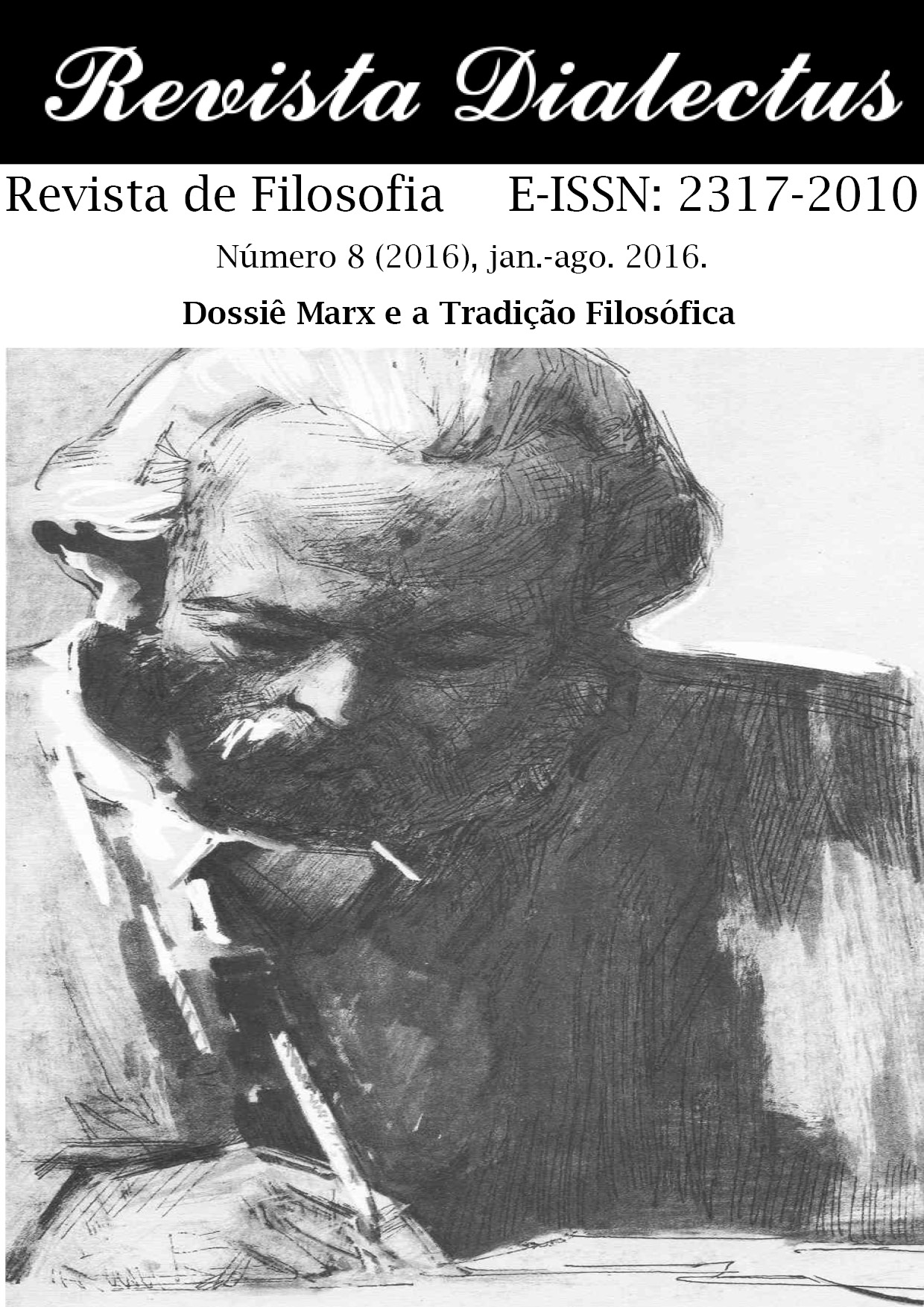A RELAÇÃO MARX-HEGEL: UM DESAFIO INSUPERÁVEL
DOI:
https://doi.org/10.30611/2016n8id5212Abstract
As relações teóricas de Marx com o pensamento hegeliano têm sido objeto de permanentes discussões. Os estudiosos divergem em suas avaliações sobre o quanto e no que Marx seria devedor a Hegel. Contudo, muitos, senão a totalidade, admite que Marx iniciou suas reflexões partindo daquele que pretendeu ser o último crítico da tradição filosófica do Ocidente. Ainda que tenhamos muitos pontos de partida para a análise da relação de Marx com Hegel, a escolha do conceito de dialética nos permite percorrer um caminho particularmente rico em seus desafios e em seus resultados. Através da dialética somos levados ao centro da crítica de Marx a toda a tradição metafísica. Se o pensamento de Marx é uma teoria das relações humanas, ela fundamenta sua dimensão universal abstraindo do espaço para fazer do tempo sua referência relativa. O tempo histórico, em seu permanente movimento, constitui a realidade e seu sentido. Porém, o homem faz a história a partir de condições já existentes. Ser revolucionário é transformar o mundo a partir do entendimento do mundoDownloads
Published
2016-10-06
Issue
Section
Dossiê Marx e a Tradição Filosófica
License
Authors who publish in this journal agree to the following terms:
- Authors retain the copyright and grant the journal the right of first publication, with the work simultaneously licensed under the Attribution-NonCommercial-NoDerivatives 4.0 International (CC BY-NC-ND 4.0) License, which allows the non-commercial sharing of work, without modifications and with acknowledgment of authorship and initial publication in this journal.
- Authors are authorized to take additional contracts separately, for non-exclusive distribution of the version of the work published in this journal (eg publish in institutional repository or as a book chapter), with acknowledgment of authorship and initial publication in this journal.
- Authors are allowed and encouraged to publish and distribute their work online (eg in institutional repositories or on their personal page) at any point before or during the editorial process, as this can generate productive changes as well as increase the impact and citation of published work (See The Free Access Effect).



















